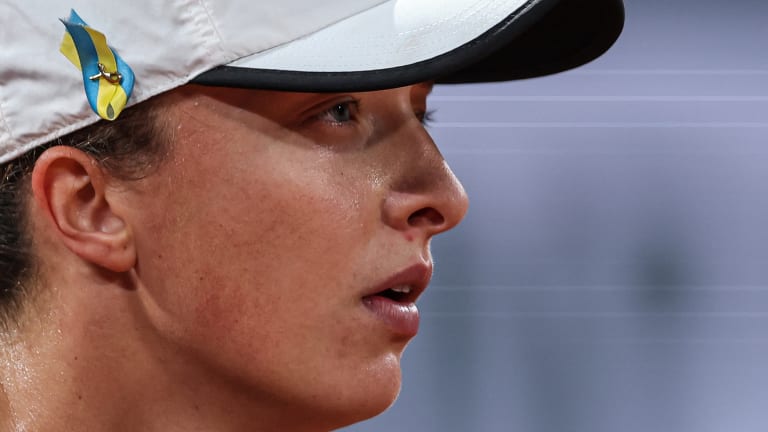Wimbledon
“A lose-lose situation”: Wimbledon did what it felt it had to do with its ban. The tours did the same with their ranking points. Nobody is happy
By May 24, 2022Wimbledon
Darren Cahill: Jannik Sinner watches more Carlos Alcaraz matches than he does with any other player
By Jul 14, 2025Wimbledon
Jannik Sinner reignites Carlos Alcaraz rivalry with Wimbledon victory
By Jul 14, 2025Wimbledon
Jannik Sinner reversed his usual pattern against Carlos Alcaraz. It won him Wimbledon
By Jul 14, 2025Wimbledon
Veronika Kudermetova and Elise Mertens win women's doubles title at Wimbledon
By Jul 13, 2025Wimbledon
Joy to the World: What Carlos Alcaraz has, and what we are enjoying
By Jul 13, 2025Wimbledon
Iga Swiatek keeps surprising herself after Wimbledon title caps "surreal" turnaround on grass
By Jul 12, 2025Wimbledon
Iga Swiatek wins first Wimbledon, sixth Grand Slam title with 6-0, 6-0 rout of Amanda Anisimova
By Jul 12, 2025Wimbledon
Wimbledon men's final preview: Will Carlos Alcaraz, Jannik Sinner share another epic?
By Jul 12, 2025Wimbledon
Julian Cash, Lloyd Glasspool become first all-British pair to win Wimbledon men's doubles title since 1936
By Jul 12, 2025“A lose-lose situation”: Wimbledon did what it felt it had to do with its ban. The tours did the same with their ranking points. Nobody is happy
We can support the tours for standing up for Russian and Belarusian players. The terrible thing is that they can’t stand up for Ukrainian players at the same time.
Published May 24, 2022
Advertising
Advertising
Advertising

“It’s a pretty tricky situation,” Iga Swiatek said, “and every solution is going somehow wrong for some part of people or players.”
© AFP via Getty Images
Advertising

Get to Know, Now: Henry Searle
The 2023 Wimbledon boys' champ trusts self-improvement mindset will see things fall into place.